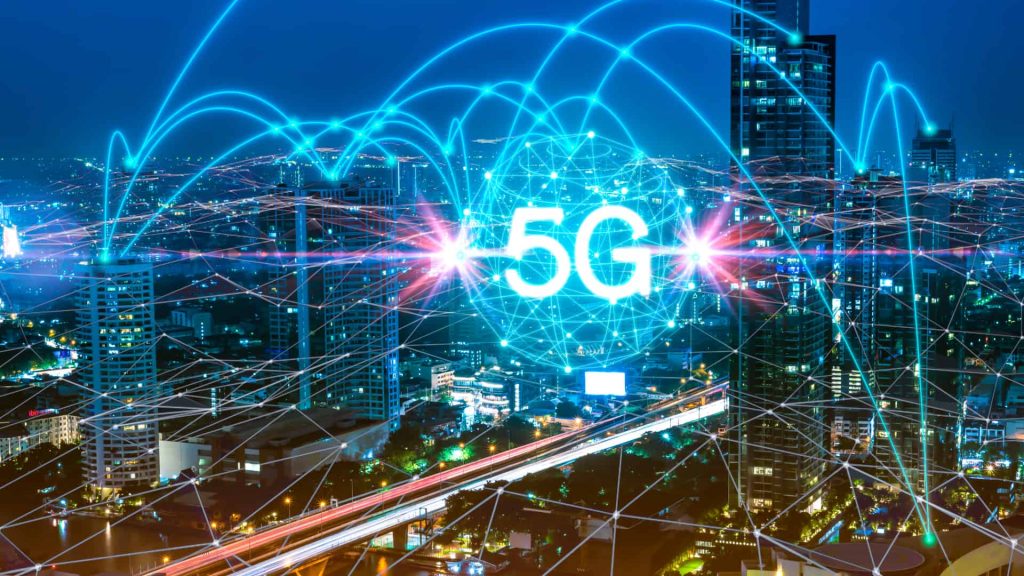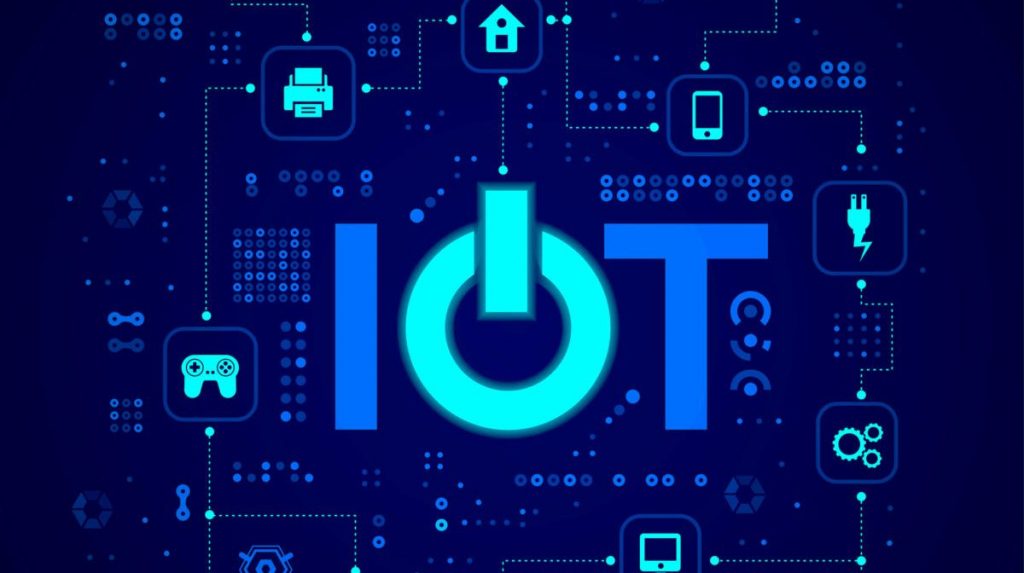Blockchain technology opens up a potential application trend for many fields such as banking and finance, retail, freight, manufacturing, telecommunications…
According to statistics from Statista, the market for telecommunications services – including fixed and mobile network services – will grow to nearly $ 1.46 trillion by 2020. Much of this growth is expected to happen. out in Asia Pacific, Europe, and North America.
In an effort to spur this growth, both new companies and incumbents in the industry have begun to explore the disruptive potential of blockchain technology. By deploying blockchain solutions on cloud platforms, these communication service providers (CSP) hope to optimize existing processes while enhancing network security. However, blockchain integration comes with challenges and integration with telecommunications is particularly complex.
Because they operate in a tightly controlled industry, telecommunications companies must determine when and where to take advantage of blockchain capabilities. Despite this uncertainty, emerging projects can show us how future applications may work, laying the groundwork for other applications. This article will analyze the benefits of blockchain integration, potential obstacles to widespread deployment, and the role of future decentralization in the global telecommunications market.
Key Summary
- Overview: The article explores the application of blockchain technology in the telecom industry, highlighting its potential to enhance efficiency, security, and innovation within the ecosystem.
- Key Applications:
- Identity Management: Blockchain enables secure, decentralized digital identities for subscribers, reducing fraud and simplifying KYC processes.
- Roaming and Settlements: Smart contracts automate roaming agreements and real-time settlements between telecom operators, reducing costs and disputes.
- Data Privacy and Security: Decentralized storage protects user data, ensuring compliance with regulations like GDPR while enhancing trust.
- Supply Chain Management: Blockchain improves transparency in telecom equipment supply chains, tracking components to prevent counterfeiting.
- IoT Connectivity: Supports secure, scalable management of IoT devices (e.g., smart cities) with decentralized authentication and billing.
- Fraud Prevention: Immutable ledgers detect and prevent fraudulent activities like SIM swapping or call spoofing.
- Use Cases:
- Streamlining international roaming agreements with automated smart contracts.
- Securing customer data in 5G networks with blockchain-based encryption.
- Managing IoT ecosystems for connected vehicles or smart homes.
- Benefits:
- Reduces operational costs through automation and streamlined processes.
- Enhances customer trust with transparent, secure data handling.
- Accelerates innovation by enabling new services like decentralized telecom marketplaces.
- Challenges:
- High implementation costs and complexity of integrating blockchain with legacy systems.
- Scalability issues for handling high transaction volumes in telecom networks.
- Regulatory uncertainties around blockchain adoption in different regions.
- Conclusion: Blockchain offers transformative potential for the telecom industry by improving security, efficiency, and trust, but its adoption requires overcoming technical and regulatory hurdles to fully integrate with existing infrastructure.
Blockchain for media service providers
As mentioned above, many CSPs have begun exploring potential blockchain applications. In a recent survey from Accenture and TMForum, 20% of respondents predicted that blockchain would have the most significant impact on their business operations. But what exactly are these companies hoping to gain from decentralization?
To answer this question, let’s start by exploring the opportunities due to this integration.
Blockchain and opportunity for telecom companies
Communication service providers face many challenges and blockchain technology represents a potential supply. Interest in technology continues to grow, stemming from its potential to revisit all business models while improving processes such as roaming and identity management. When many telecom companies are testing blockchain applications, it is clear that many value-added opportunities exist.
Fraud prevention in roaming
Telecom companies’ blockchain adoption has the potential to reduce roaming frauds through smart contract functionality. By using private blockchain networks, roaming agreements between operators will become transparent. Under this scenario, designated nodes can act as a validator (miner) to verify each transaction broadcast on the network.
When a customer triggers an event in the access network, the Temporary Public Mobile Network (VPMN) will broadcast the Call Details Record (CDR) information as a transaction with the Permanent Public Mobile Network (HPMN). ). In return, this information triggers a smart contract, implementing roaming agreement terms.
Identity management and authentication
Because of its decentralized nature, blockchain can bring additional value to identity management applications by breaking down intermediaries. Under this scenario, customers would only require a virtual ID to authenticate themselves, resulting in a much higher level of satisfaction.
Some incumbent companies are exploring this use case extensively. For example, both Deutsche Telekom and SK Telecom are using blockchain technology to build a real-name authentication program, streamline verification, and process registrations. SoftBank is also working on a secure, cross-border identification system.
5G transition
It’s no secret that the transition to 5G technology is happening. According to a recent report from Ericsson, 5G subscribers are expected to reach 1.9 billion by the end of 2024. And when telecom companies turn to perform 5G functions, blockchain provides an opportunity to streamline the process. this converter. To provide the shared access promised by 5G, CSPs will need to handle discrete access nodes and diverse access mechanisms.
When managing this process, rules and agreements between different networks will take the form of smart contracts. Thanks to this flexibility, self-executing contracts can connect devices to the nearest service provider and assess the continuity of the connection and charge service through access buttons.
Internet of Things (IoT)
The IoT represents how devices interact over the Internet and the industry shows no signs of slowing down. According to Gartner’s forecast, the IoT market of businesses and automobiles will increase to 5.8 billion terminals by 2020, an increase of 21% compared to 2019. By the end of 2019, 4.8 billion terminals The end is expected to be used, up 21.5% from 2018.
Although this movement continues to revolutionize industries, cybersecurity is an important issue. When devices transmit sensitive information online, it is always possible to fall into the wrong hands. Here, blockchain can create a safer environment for data transfer by creating highly secure peer-to-peer networks.
Blockchain and obstacles for telcos
While there are clear opportunities, there are a number of obstacles to blockchain adoption in the telecommunications industry ecosystem, including:
- Data standards: The telecommunications industry now adheres to the setting of data standards, structures, and transmission infrastructures. As such, bringing blockchain applications into the current model also creates significant challenges.
- Legal framework: Since many blockchain applications use self-executing smart contracts, their use of management will require widely accepted guidelines. While establishing a legal framework is clearly a big job, it is essential to ensure the safe implementation of digital contracts.
- Data management: Blockchains retain all historical data in a transparent, unchanged structure. However, the size of an established blockchain may become unsustainable due to continuous operation. As such, a mechanism for storing historical data is still an important feature of future infrastructure.
The future of blockchain in telecommunications
CSPs have a lot to gain from blockchain integration. Companies operating in this space have the opportunity to prevent fraud, improve identity management, easily transition to 5G and enhance IoT security.
However, CSPs must also ensure that blockchain technology is aligned with internal business processes, adding value in the most important place. In an industry that depends on interoperability and standardization, CSPs would be wise to collaborate on blockchain integration to realize the full potential of blockchain applications.
As major telecom companies continue to invest in blockchain projects, it’s clear that stakeholders realize the value of future integration. It’s time for telecom companies to start taking advantage of the power of immutable, transparent and decentralized solutions to their networks.
Blockchain Development Outsourcing Company in Vietnam
With a strong force of engineers, hard to learn and ready to take new opportunities, Vietnam is considered one of the emerging Blockchain Hubs in the region.
Established in 2016, InApps Technology has continually evolved over the past years to reach the forefront of being a leading software outsourcing company in Vietnam. If you are looking for a partner to deliver blockchain solutions and consulting services, we are the right partner to integrate the right type of blockchain technologies into your mobile application development.
We have 3 models for you to easily choose according to your needs and can change it flexibly:
- Dedicated team
Allocated to work only on the assigned project, tasks from the client
- Joint venture
Financed by both partners to share risks and have desired time-bounded results
- Build operate transfer
We build an ODC, set-up, launch and operate. The result is then transferred to the client
Each type of collaboration has its own benefits and disadvantages, depending on your project’s requirements and budget, we can advise the most suitable options to bring the best results. Contact us now for more details.
Let’s create the next big thing together!
Coming together is a beginning. Keeping together is progress. Working together is success.





















